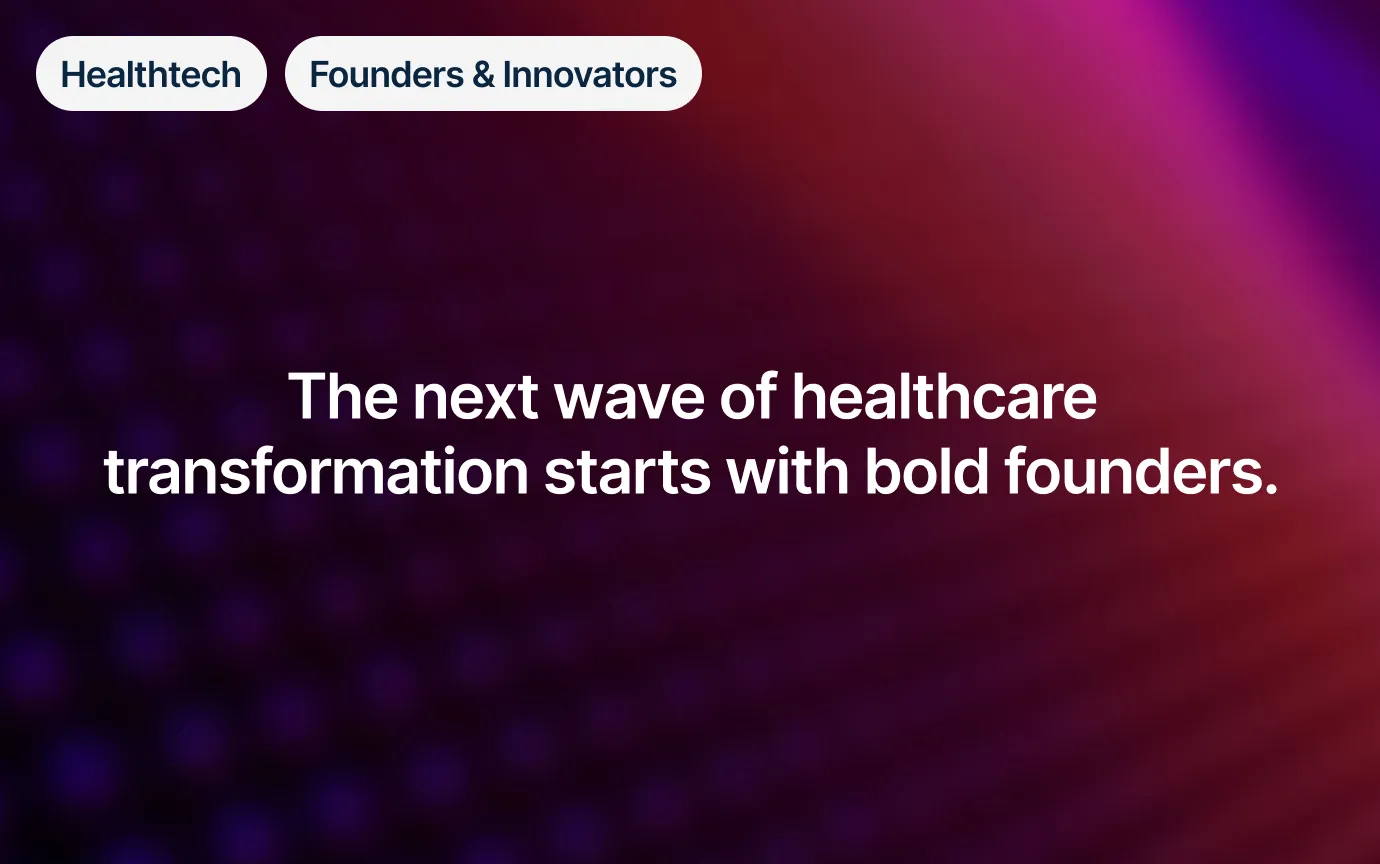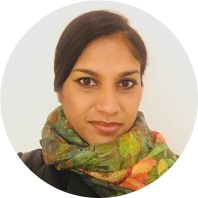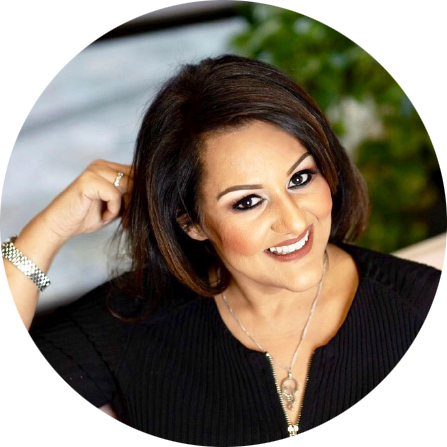

Rebecca Richards, shared in winning the Nobel Peace Prize awarded to the World Food Program, where she is Chief of Peace and Conflict in the Program and Policy Division.
On October 9th, my dearest friend, Rebecca Richards, shared in winning the Nobel Peace Prize awarded to the World Food Program, where she is Chief of Peace and Conflict in the Program and Policy Division. Beginning as a United Nations intern and then moving up the ranks, Rebecca has worked war zones, refugee camps, and famine-stricken towns. She sacrificed her time, comforts, and safety to make a difference in people’s lives around the globe. We talk about her personal and career challenges and achievements, the mission of the World Food Program, the use of technology in combating food insecurity, and the important role healthtech leaders can play in solving this global crisis.
I urge healthtech leaders to read this blog (an abridged version of our conversation), listen to the full interview on our podcast, and consider Rebecca’s suggestions for partnership. Healthtech leaders can play a crucial part in ending food insecurity by collaborating with the World Food Program, using the power of technology to make change.
Ruby: How did you first hear that the World Food Program won?
Rebecca: I have been in shock since I heard the news. However, it’s not just about me, it’s about the 18,000 employees at the World Food Program, and the 690 million people around the world who are hungry today. It’s a huge honor and shines a light on a really important issue—food insecurity.
I was on the phone with a colleague. We had an appointment to talk and he called to say, “I’m running over, but stay on the line.” Then he sent me a WhatsApp and said, “Oh, my gosh, you’ve won.” I thought, “What is he talking about?” I went onto Google and the news was starting to come out and I couldn’t believe it. I sat there in stunned silence and then my phone started going. Everybody was going crazy. It lasted the entire weekend.
Ruby: What influenced you to study peace and security at university and how did that impact your career?
Rebecca: My family history is closely associated with war and conflict. I’m from Sri Lanka, but London-born and -raised. My parents are Sri Lankan Tamils. I grew up understanding what it was like to have to escape your country. I knew that I wanted to contribute, but didn’t know where I would end up. I finally got an internship with the United Nations,nd then two years in, I was offered a three-month consultancy in Pakistan for the UN special mission to Afghanistan. I was 22 and I went to my dad and said, “Dad, I want to go to Pakistan, it’s only three months.” He looked at me like, “There is no way on earth I’m going to let you do this.” He thought about it and said, “You sure it’s three months?” “Yes, Daddy. Let me go,” I pleaded. He did, and I never came home. I found myself in Pakistan working on the Afghanistan portfolio on September 11. The minute September 11th happened, my whole life changed. I ended up at the Bonn peace talks and then in Kabul on the first plane with the Secretary General’s delegation. This enveloped the next three years of my life.
Ruby: Can you tell us what the World Food Program does in terms of their focus on food and security?
Rebecca: The World Food Program is about ensuring that we save lives and change lives through food security, because food security is foundational. It’s the first building block to stability and security. The WFP’s mission is about reaching everybody who does not have enough food. Because of conflict, the numbers are through the roof. With the pandemic, those numbers have gone even higher. Four countries today—Yemen, South Sudan, Nigeria, and Burkina Faso and the Sahel—are facing famine-like conditions. In a world where there’s enough food to feed everyone, that equation doesn’t make any sense.
Ruby: You’ve mentioned that the Democratic Republic of Congo is one of the most fertile areas to grow food and yet there is extreme famine. How does that work?
Rebecca: I was astounded when I was there how green and beautiful it was. You can drop something and it will grow. Yet out on the streets there are children begging—not one or two, but hundreds and hundreds. It happens mainly because of the lack of infrastructure. There are no real roads to transport food to the markets. They don’t have the systems in place for food storage or preservation. The entire infrastructure—supply chains, production, delivery—is weak, if not nonexistent. Conflict doesn’t allow for those systems to be stood up. It’s in those circumstances that WFP comes in. In places like South Sudan, it’s actually a matter of flying in food and dropping it because people are at war and you can’t land. It’s hugely expensive, but we do what it takes to get to them.
Ruby: Is there a place for technology to solve these problems or is it beyond technology?
Rebecca: The future is technology. If we don’t have technology at the heart of our solutions around hunger, we’re not going to reach them. If you look at the way the World Food Program was working 20 or 30 years ago, it was the simple effort of taking wheat in a bag and moving it in a truck from A to B. Today, we’re talking about being able to reach people through a cash card where they can buy food at the supermarket.”
Ruby: How did the World Food Program provide cash cards for displaced refugees?
Rebecca: First, you need to understand where they are and who they are. Technology plays an incredible role in making this assessment, especially in conflict countries, because many of the people we can’t reach. That could be through using drones to see where people are. By using satellite imagery, you’re able to see movements and presence.
Technology is going to be the future for us because with cash you have buying power and are able to instill and drive economic empowerment for a family. That also brings with it dignity and that’s really important, because you must be able to deliver food in a way that’s dignified.
Ruby: What about the application of technology for food development or nutrition?
Rebecca: Food security is about receiving nutritious food, the right types of food. The first thousand days of a child’s life is the most important. If they do not have sufficient food, they miss out on huge opportunities later because they have not been able to develop in a way that maximizes their potential.
There’s a huge learning potential around the role of technology and the ability to reach people. There was one fantastic app that was put together by a staff member in Senegal where we were able to teach mothers the importance of breastfeeding, the types of food they need to feed their children, and how to put it together—add water, add milk and the quantities. It was done pictorially. To communicate, you have to make it visual, which is why an app is effective. They can click through and see what they need to do and where they need to go.
I also want to mention the link to climate change and how it’s an important driver of food insecurity. Farmers, for example, have an alert system for when there’s going to be rain or no rain. Access to weather information allows them to plan for their crops, but also to protect their crops. It changes their lives. They can harvest earlier because they know the rains are going to come earlier. It builds the resilience of the family and that’s all down to technology.
Ruby: Are those all being developed by the World Food Program or does the World Food Program partner with industry?
Rebecca: It’s critical to partner with the private sector. Solutions that we use are not necessarily solutions that originate from the WFP. We rely on innovation that comes from the private sector. We work with it, take it on board, and try to scale it up.
Ruby: For companies that have developed solutions to address aspects of food security, are there ways to work with the World Food Program?
Rebecca: At the WFP, we have a private sector team in Rome and an innovation center in Munich, Germany. WFP employees bring to the table the problems we face at the country level and connect them to the private sector solutions.
An example of this is one I encountered with Syrian refugees at a camp in Iraq. Many are smart and educated, with degrees. War has meant that they are completely trapped. Through innovative solutions, we can help them work via computer programming from a tent. They’re able to get a small income and connect to a company. This gives them a huge amount of hope.
Ruby: Many in our audience are entrepreneurs who have access to capital and technologies, and engineers to build solutions. What could we do better and what are we not doing enough of?
Rebecca: We’re not doing enough to connect them to us and to where the action is. There’s a huge amount of goodwill and interest, but we’re missing the connection. Luckily, the Nobel Prize is shining a spotlight on the work of WFP and it offers a huge opportunity. My appeal is, know us and come in with a creative mind and help us find the solutions. Because the problems we’re trying to tackle are huge.
Through the work of your audience, you can connect directly to people’s lives through the WFP. That’s unique because we have that reach in places that nobody else is in. We work in 80 countries and employ over 18,000 people. And today we have a $5B shortfall. That’s the money we need just to reach a fraction of the number that are hungry. If we’re going to make a dent in these numbers, it’s only going to be through partnership with the private sector.
Ruby: What solutions should health tech entrepreneurs be building to address the issues the World Food Program faces?
Rebecca: Bringing technology to real-life situations. It’s not one-size-fits-all because every country, every region is different. Understanding the kind of pressures and the dynamics, especially around conflict, at a community level, is crucial. The beauty of tech companies is their flexibility, their ability to adapt, and create solutions that fit in different contexts.
The UN structures and systems are not as cool as the tech industry. You have to help us move into the 21st century. Tech and healthtech will be the ones who can build the solutions that are going to save us money. For example, if I look today at the nutritional issue, to reach mothers and give them the nutrition they need for their kids, we are buying products from companies in Europe and flying them into Africa. The products look like packets of peanut butter where mothers can open the packet and feed it directly to their child without needing water, a stove, or fire. The cost around flying something from Paris to Burkina Faso is immense. Help us think through those solutions that are going to save us money, because every dollar we save means we can get to another child.
Ruby: What parting wisdom can you give healthtech and tech entrepreneurs?
Rebecca: Step up now because we need you at the table. We need you to help us figure this out. Give us a call and let’s get moving, because the numbers are really big and they’re rising every day because of the pandemic. If anyone can help us to change, it’s going to be healthtech entrepreneurs.
If you would like to listen to the full interview click here.

Ruby Gadelrab is a seasoned health executive with a track record in successfully commercializing healthcare and healthtech products. Her expertise lies in developing high-impact B2B and B2C marketing, branding, and commercial strategies. Ruby served on the executive team at 23andMe as vice president of commercial marketing and has worked for many leading companies in the biotech and genetic spaces. Before founding MDisrupt, Ruby consulted for, advised, and mentored more than 25 companies in the healthtech space.
Whether you are an international company and looking to bring your health product to the US, or a US company considering global markets, MDisrupt can help you ask the right questions, prioritize target markets and de-risk the process for you.
Talk to us—we can help.